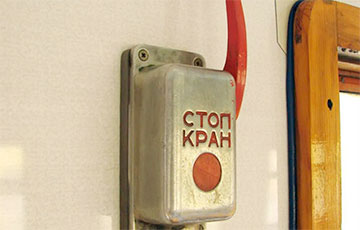Economist: At One Moment, the Stop Crane May Break
3- 5.08.2021, 10:20
- 6,974

The “sword of Damocles” hangs over the Belarusian banks.
Raiffeisen Bank International has limited cooperation with Belarusbank. Now one of the largest Austrian banking groups will not carry out international transfers for the state bank of Belarus.
Dmitry Kruk, an expert at the BEROC Center for Economic Research, explained in an interview with Filin what could be the consequences of such a decision.
- Why do you think Raiffeisen Bank International took such a step?
- I think that this decision was influenced by recent events. Belarus again appeared on the front pages of European media in connection with scandals in sports, the escalation of the migration conflict. This served as the trigger. And the basis is precisely the financial sectoral sanctions, which previously fell under Belarusbank, Belinvestbank, and Belagroprombank.
From these sanctions, as I call it, the informational effect follows. The appearance in the sanctioned list of the names of three specific banks leads to the fact that it is often easier for their counterparties to play it safe: not to carry out additional control or study whether these banks have the right to conduct the relevant transaction and whether the transaction is outside the prohibited list of operations or not.
And if this deal is not so critical and important for the counterparty, and, most often, it is the case for European counterparties, it is easier for them in principle to refuse to conduct them.
- How will RBI's decision affect the work of Belarusbank?
- Raiffeisen's statement says about international payments to Belarusbank. Statistics on how many transfers go from one bank to another are not publicly available. This information is not disclosed, so we can only speculate on the volume of transactions.
However, I do not think it is too large and would instantly affect some financial indicators for Belarusbank. More likely no than yes.
But the problem is that this informational effect is creeping but effective. That is, the Raiffeisen message itself can become a trigger for other counterparties of Belarusbank that it is better not to do business with this bank. And, in such a self-expanding way, the effect can continue to gain strength.
Accordingly, the toxicity of Belarusbank for counterparties may increase. Sooner or later, this may also affect important transactions for the bank, associated with serious volumes of financing and not just with transfers.
Considering that Raiffeisen is a rather serious name in the vastness of Eastern Europe, it is one of the most active Western banks, such a statement is an essential thing and, as I have already said, self-restrictions on the part of other counterparties may follow.
For other banks subject to sectoral financial sanctions, the consequences may be similar. It is almost impossible to name the line beyond which the problems for banks will begin, but this effect is accumulating. And, at one point, it can happen as a stop crane may break.
- There is an opinion that the decision of Raiffeisen Bank is the beginning of a process that, de facto, may have about the same consequences for the Belarusian financial system as disconnecting from the SWIFT system.
- No, I disagree with that. These are events that are different in scale and impact. If to translate into an analogy, the hypothetical shutdown of the SWIFT system can be compared to an earthquake with a magnitude of 8-9. And the RBI statement is the most modest 1-point earthquake.
The hypothetical disconnection of SWIFT is an instant blocking of all payments, a massive shock to the entire financial system.
And Raiffeisen's failure is such a very unpleasant snap on the nose with further progressive bad consequences but without such a devastating effect.









